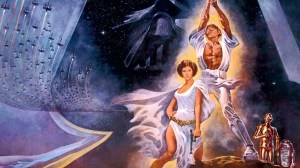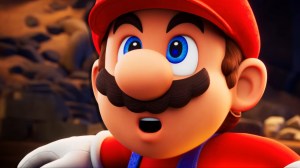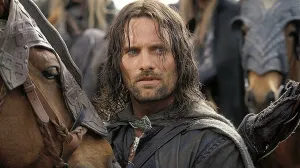In the long history of Marvel Comics, most characters have come into contact with at least dozens, if not hundreds, of writers and artists. They are a collection of vast influences ranging from a singular issue to titanic multi-year runs. When considering the essence of a single hero (or villain), it becomes clear that some creators had a larger impact than others. In celebration of the Black Panther movie, we are looking at the essential Black Panther creators. These are the comics artisans who have left an indelible mark on T’Challa, Wakanda, and his immense supporting cast. You can see their influence both on the movie and across Marvel Comics today. Black Panther would not be the character we love without their contributions and their comics provide the best path to understanding this incredible hero.
Videos by ComicBook.com
Here we take a look at the co-creator of Black Panther and many of Marvel Comics’ other greatest characters: Jack Kirby
The Creator
It is almost impossible to provide a miniature biography for Jack Kirby. He created comics for more than 50 years in addition to fighting in World War II and building a reputation as one of the hardest working and most honorable men in American comics. Along the way, he defined the superhero, romance, and monster genres, and created dozens of the most valuable characters in existence today. His work redefined the medium, and he remains the most influential creator in Western comics to this day. While his nickname, “The King”, was initially offered with a wink, it is one his legacy has more than earned. Kirby co-created Black Panther along with Stan Lee in the pages of Fantastic Four in 1966. He provided Black Panther’s initial costume, personality, and origin before the character moved to the pages of The Avengers. Kirby would return to the character in 1977 upon his return to Marvel after a six-year hiatus at rival DC Comics. While he only wrote approximately 14 issues starring Black Panther, his influence is undeniable.

What Kirby Added
Kirby’s initial work on the Black Panther spanned only a handful of issues in Fantastic Four and Tales of Suspense (renamed Captain America in Black Panther’s final appearance). These issues remain the foundation of Black Panther’s origin, appearance, and central character traits though. In Fantastic Four #52-53, King T’Challa invites the Fantastic Four to Wakanda in order to aid him in fighting Ulysses Klaw. The battle with Klaw only comprises about a quarter of the story, while the rest is dedicated to Black Panther battling the Four and retelling his own origin. The technologically advanced state of Wakanda and the assassination of King T’Chaka by Klaw have all remained constants within the stories of Black Panther.
Kirby continued to present Black Panther in an adventure with Captain America where they battle Baron Zemo. This removed Panther from Wakanda and resulted in Captain America offering his new friend an invitation to The Avengers, filling in for his own departure. Black Panther subsequently appeared in the pages of The Avengers for the next several years, becoming a key member in the legendary Roy Thomas run. Jack Kirby would not return to the character for almost a decade though.
A new volume of Black Panther was one of the very first projects pursued by Kirby upon his return to Marvel Comics. He only created 12 issues of the series before moving on and it was cancelled soon thereafter. Few concepts from this period have remained as popular or important as anything from Fantastic Four. However, the Frogs of Solomon, a pair of mystical frogs controlling space and time, have remained a favorite element within the Black Panther mythos.

Why It Matters
Kirby’s most significant contribution to the Black Panther is undoubtedly breaking ground at Marvel Comics for the role of a black protagonist. Black Panther precedes the Falcon by several years and Goliath by almost a decade. Panther’s first appearance in Fantastic Four presents him as a capable leader who can almost defeat the entire Fantastic Four himself. Both the Panther’s presence and the incredible technology of Wakanda are repeatedly noted by the team as they are surprised at just how advanced the country is.
This also highlights a critical flaw with the earliest stories of Black Panther. There is a notion of exceptionalism at play, in which Wakanda is surprising because it is a nation with the luxuries of the United States. In spite of the astounding technology on display, the initial appearances of Wakanda also infuse it with stereotypical tribal imagery. It is a difficult balance between earnest progressivism and misunderstandings of African culture.
The earnestly positive additions have far outweighed negative aspects of Black Panther’s first appearances in the long run. Kirby’s first costume design remains largely unchanged. While there was initially a much more colorful outfit and name (Coal Tiger dressed in red, yellow, and black), Kirby ultimately opted for the complete black suit with striped gloves and boots. It is a strikingly simple concept, especially compared to much of Kirby’s contemporary work, but it has become iconic through the decades. The technology of Wakanda as presented by Kirby is as fantastical as anything on Galactus’ craft, establishing a high bar for future stories to match. Wonders like a multi-terrain traveling sphere used by Johnny Storm also showed how Wakandan technology differentiated itself from the outside world.
Kirby also was the creator to push for the first series titled Black Panther, reemphasizing the character’s role in Marvel Comics after the cancellation of Jungle Action. Black Panther is not only the first black superhero at Marvel, but also one that has shown incredible staying power over the years. As he prepares to break new barriers in Hollywood and has become a central player in both Marvel comics and movies, it’s apparent that none of this would have been possible without Kirby’s foundation.
The Complete Black Panther by Jack Kirby
Fantastic Four (vol. 1) #52-54, 56, 60
Fantastic Four Annual (vol. 1) #5
Tales of Suspense (vol. 1) #97-100
Black Panther (vol. 1) #1-12
First Appearances
Black Panther (T’Challa): Fantastic Four (vol. 1) #52
Klaw: Fantastic Four (vol. 1) #53
T’Chaka: Fantastic Four (vol. 1) #53








